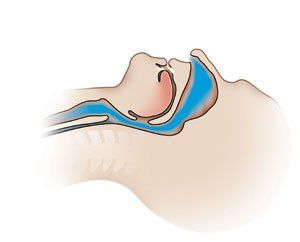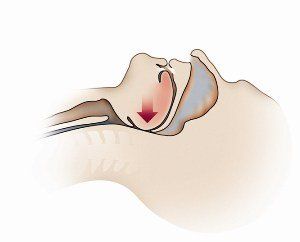Sleep Apnea
What is Sleep Apnea?
Obstructive sleep apnea (OSA) is a disorder in which breathing is briefly and repeatedly interrupted during sleep. The “apnea” in sleep apnea refers to a breathing pause that lasts at least ten seconds. OSA occurs when the muscles in the back of the throat fail to keep the airway open, despite efforts to breathe.
Sleep apnea is witnessed when you hear a person who snores throughout the night, stop snoring, appear to hold their breath, gasp and then take a deep breath. However, instead of holding their breath their airway is actually completely closed. Their body recognizes the extreme distress and briefly awakens the person just for the cycle to begin again. Without the person’s knowledge, this can happen hundreds of times each night, keeping the person from getting the deep sleep needed for good health and to feel refreshed the next day.
Has your Bariatric Specialist recommended a sleep study prior to treatment or surgery?
Your provider may recommend that you be evaluated for Obstructive Sleep Apnea if you are considering Bariatric Surgery. Left untreated, patients with OSA may be at a greater risk of post-operative complications. As the tri-state area’s largest independently operated sleep center, Sleep Management Institute is able to offer sleep studies at a significantly lower cost, still providing the highest quality care, and convenient locations in Kenwood, Eastgate, Monroe, and Middletown. No need to wait weeks or months to schedule a sleep study. Call us today to schedule your appointment.
What are the signs and symptoms of Sleep Apnea?
Those with sleep apnea generally complain of feeling tired all the time regardless of how much sleep they get. They often speak of how well or how long they sleep not realizing the poor quality of their sleep. Some may even feel good in the morning but by mid morning or afternoon are already in need of a nap. Because many live with tiredness for years they tend to believe this state is normal or attributable to other issues such as age. It’s important to understand that quality sleep of adequate length will result in energy filled days.
The strongest indicators of sleep apnea are as follows and should be evaluated by a health professional.
- Chronic snoring
- Excessive Daytime Sleepiness
- Wake up gasping or choking
- Stop breathing while sleeping
Since people with sleep apnea tend to be sleep deprived, they may also suffer from sleeplessness and a wide range of other symptoms such as:
- difficulty concentrating
- depression
- irritability
- sexual dysfunction
- learning and memory difficulties
- falling asleep while at work, on the phone, or driving.
Left untreated, symptoms of sleep apnea can lead to many other problems. Your body needs rest and with sleep apnea you are not getting the proper amount of rest. It’s also being deprived of desperately needed oxygen throughout the night. It is no surprise that serious health problems such as the following may arise…and the list is growing.
- high blood pressure or hypertension
- heart attack
- congestive heart failure
- cardiac arrhythmia
- stroke
- diabetes
- obesity
Affordable Sleep Apnea Studies
Sleep Management Institute is the largest independently operated sleep center in the tri-state area. This means, we are able to offer more affordable sleep study options than many hospitals and clinics. Learn more by watching our video.



